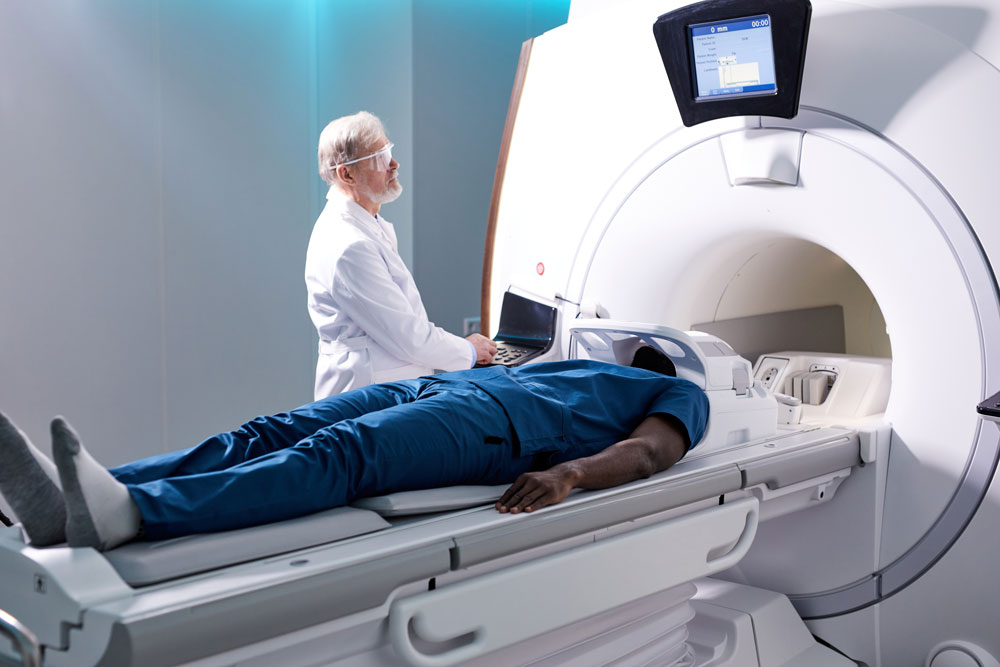
MRI cost is a hot topic right now. In the world of modern medicine, Magnetic Resonance Imaging (MRI) stands as a vital diagnostic tool, offering precise and detailed insights into various health conditions. However, understanding the cost of an MRI, especially without insurance coverage, can be a daunting task. In this article, we delve into the intricate landscape of MRI costs and what to look for.
MRI Basics
Before we dive into the specifics of MRI costs, let’s briefly revisit what an MRI is and why it is essential. An MRI is a non-invasive medical imaging procedure that utilizes a strong magnetic field and radio waves to create detailed images of the internal structures of the body. It plays a pivotal role in diagnosing various medical conditions, from orthopedic injuries to neurological disorders, without the need for surgery.
Factors Influencing MRI Costs
- Geographical Location: As highlighted in the Talk to Mira article, one of the primary drivers of MRI cost variability is geographical location. Urban areas or regions with a higher cost of living often see higher MRI prices due to increased operational expenses.
- Type of Facility: The choice of where to get an MRI can significantly impact the cost. Hospitals tend to charge more for their services compared to independent imaging centers or clinics. However, hospital-based MRIs may be necessary for complex cases.
- Insurance Coverage: Your health insurance plan plays a significant role in determining your MRI’s out-of-pocket cost. Different plans offer varying levels of coverage, deductibles, and co-pays, leading to different financial obligations for patients.
- MRI Type: Depending on your medical condition, you might need a specialized MRI, such as a contrast-enhanced MRI or functional MRI (fMRI). These specialized procedures can come with higher price tags.
- Additional Services: In certain cases, additional services like anesthesia or sedation may be required during the MRI, further increasing the overall cost.
Unpacking the Numbers
On average, an MRI can cost anywhere from $375 to $2,850 or even more, depending on the factors mentioned above. In the United States, the national average is $1,325. Below you can find the average costs, the range, and the overall target fair price.
- National Average: $1,325
- National Range: $375-$2,850
- Target Fair Price: $750
Cost Factors
The cost of an MRI is less about who is taking the MRI and more about the location of the body that’s being scanned. For example, a cardiac MRI can cost between $430 and $6,500, whereas a neck MRI has a cost variability of $500 and $11,800. Additional factors that influence the cost of MRI include the facility setting, whether you have insurance, and your location.
Navigating the MRI Cost Maze
Understanding the intricacies of MRI costs is the first step toward making informed decisions about your healthcare expenses. Here are some practical tips for navigating the MRI cost maze:
- Insurance Verification: Contact your health insurance provider to understand your coverage and potential out-of-pocket expenses. Request a list of in-network providers to maximize your benefits.
- Comparison Shopping: Don’t hesitate to compare prices at various facilities. Inquire about cash discounts if you plan to pay out-of-pocket.
- Consult Your Healthcare Provider: Seek guidance from your primary care physician or specialist regarding where to obtain a cost-effective MRI while ensuring the quality of the service aligns with your medical needs.
- Explore Financial Assistance: Some imaging centers offer financial assistance or flexible payment plans for patients facing financial constraints. Don’t hesitate to ask about these options if necessary.
Bottom Line
The cost of an MRI in 2023 can be a complex puzzle to solve, but it’s essential to remember that price does not always equate to quality. The expenses associated with MRI examinations can fluctuate based on factors such as the location, the facility, and where the imaging is performed on the body. If you are covered by insurance, you will typically need to cover your deductible before your insurance begins covering the costs. Alternatively, if you lack insurance, you will be responsible for paying the full amount out of your own pocket. Although the typical cost range for these procedures across the country falls between $375 and $2,850, undergoing an MRI for the neck or chest, for instance, could potentially result in expenses exceeding $10,000.
Source:
